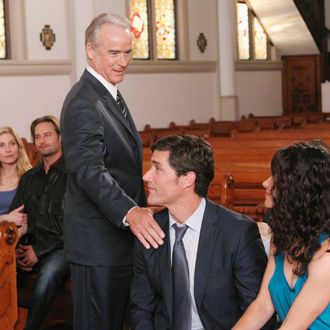
Is the so-called “golden age” of television over — and is it Lost’s fault? That’s what Heather Havrilesky claims in this weekend’s New York Times Magazine: Just as Star Wars heralded the end of seventies cinema (by creating a stronger market for blockbusters), Lost ushered in the end of the great TV drama. “Lost produced a dangerous addiction to spectacular, heart-stopping pilots with very little clue where to go from there,” she says. “The primary objective for new series now seems to be to pull in maximum viewers with something twisted and unique in the first 60 or so minutes, regardless of whether all the mystery pellets you’re tossing out will ever amount to anything.” According to Havrilesky, shows like The Killing, American Horror Story, and Homeland demonstrate our decline. But isn’t Havrilesky ignoring the numerous other shows, like say, Twin Peaks or The X-Files, that couldn’t quite keep pace with the narrative power of their mysteries? If the golden era is over, why are two of her examples — Mad Men and Breaking Bad — still on? And yikes, does Homeland really belong in the same category as The Killing or American Horror Story? If there’s a golden age of television, when was it? And if it’s over, what ended it?




